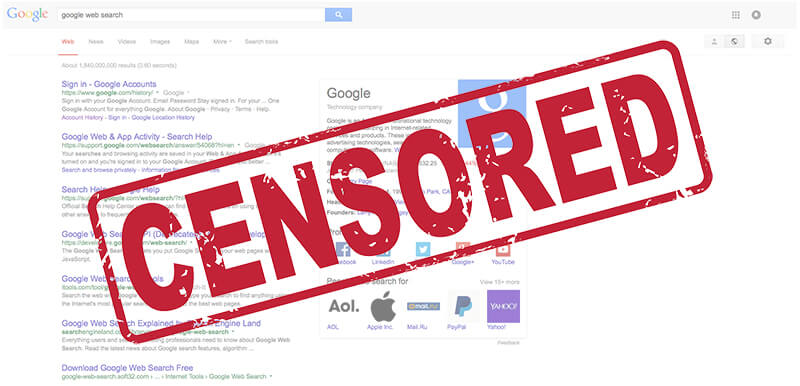
Canada’s Ruling on Google Search Results Raises Censorship Concerns
The Canadian Supreme Court has ordered Google to de-index an e-commerce site globally, setting a disastrous precedent that opens the door for other governments (and private parties) across the globe to try to control or censor Google’s search results.

According to a new report from The Star, the Supreme Court of Canada upheld a company’s effort to force Google to de-list entire domains and websites from its search index, effectively making them invisible to everyone using Google’s search engine.
The case, Google v. Equustek, stems from a 2011 complaint from the company Equustek Solutions. The British Columbia firm charged that a group of Equustek distributors (known as the Datalink defendants) were selling counterfeit Equustek products online.
Datalink continued to sell these goods globally, even after the court ordered it to stop, prompting Equustek to ask Google to intervene. Google initially de-indexed 345 specific webpages associated with Datalink on google.ca.
Equustek then sought an injunction to stop Google from displaying any part of the Datalink websites on any of its search results worldwide. A lower court granted the injunction, and the Supreme Court on Wednesday upheld it.
“The problem in this case is occurring online and globally,” Justice Rosalie Abella wrote for the majority. “The Internet has no borders – its natural habitat is global. The only way to ensure that the interlocutory injunction attained its objective was to have it apply where Google operates – globally.”
Some media groups, publishers, copyright organizations, and civil liberties groups are worried about the precedent it sets.
“The Internet is a global phenomenon, and there is great risk that governments and commercial entities will see this ruling as justifying censorship requests that could result in perfectly legal and legitimate content disappearing off the web because of a court order in the opposite corner of the globe,” commented David Christopher of Open Media.
“That would be a major setback to citizens’ rights to access information and express ourselves freely,” he concluded.

